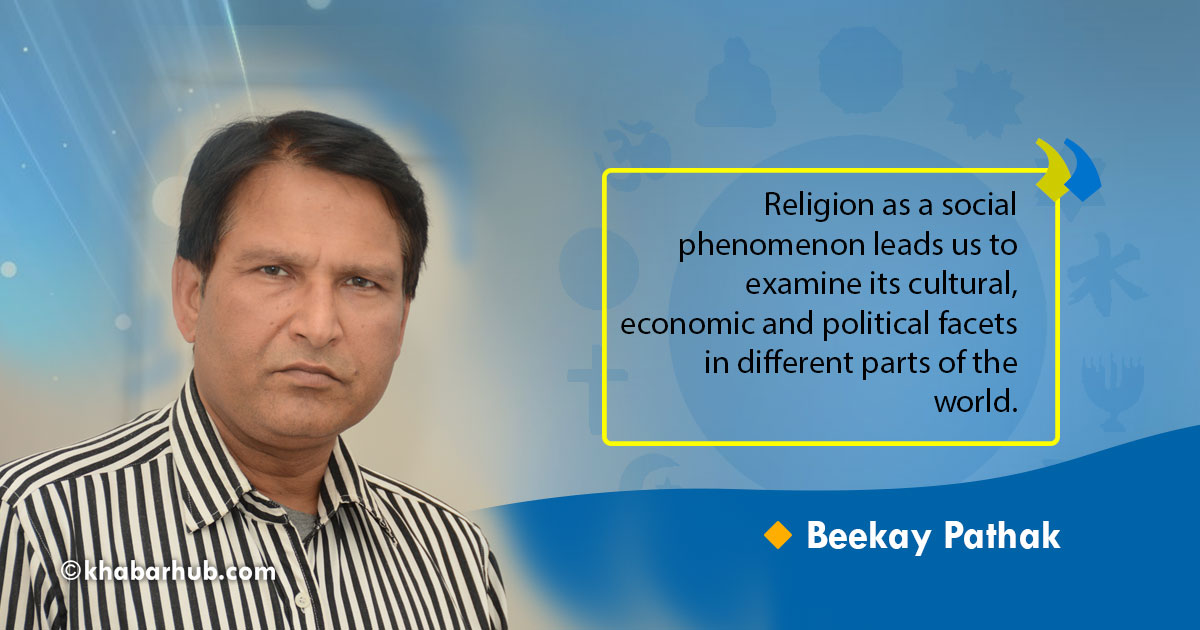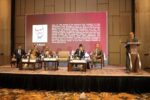It is high time we explored and examined our individual identity other than religion we follow. We all know how we are identified by religious fundamentalists and bigots as ‘true followers’ of a religion we are born in or choose to follow on our own.
We like it or not a religion bestows identity on us wittingly or unwittingly. Religion, as it works around us, is a social phenomenon no matter we understand its spiritual essence or not. It helps us profiling the people conveniently for political and economic exploitation by those who make a business out of it by invoking supernatural power or God.
Instead of being an individual quest for the spiritual growth of an individual, religion becomes the rallying point to settle scores with others belonging to different sects, denominations, and other religions. We never know who is planning to attack us and for what reason because we are already affixed with an identity based on religion with theology we may or may not understand.
The term ‘social’ in a statement ‘religion is a social phenomenon’ refers to human beings as a whole around the world.
And we are knocked down or just rewarded as if individual merit and other human qualities have no saying in life and religious frenzy with its archaic non-scientific theological interpretation is all engrossed in domination, discrimination and destruction of ‘others’ outside their sectarian and religious group.
Religion as a social phenomenon leads us to examine its cultural, economic and political facets in different parts of the world. Lately, sociologists have started taking great interest in different types of religions and related sects because religions have been found to have far-reaching influence on a range of social phenomena (or issues) such as culture, politics, economics, science, and technology in day to day life at both collective (group) and individual level. The term ‘social’ in a statement ‘religion is a social phenomenon’ refers to human beings as a whole around the world.
At the same time, there are religious groups who may raise serious objections to the words and rhetoric (used as pleasantries or otherwise), which do not belong to their own religion.
It further highlights relationships amongst human beings in all walks of life and covers all facets of everyday human life as mentioned above such as education, politics, and economic activity.
Religion influences our day to day life as its presence is palpably felt in the culture we live in —– the way we interact, gesticulate, eat and dress up for different occasions. Both culture and religion give sustenance to each other as one cannot survive without another. It guides our psychological being — the emotional pattern of our life, the way we relate to each other. Few words like Jai Shri Ram, Ram-Ram, Sita-Ram, Radhe-Radhe, Vahe Guru, Jay Maa Kali Aayo Gorkhali, Guru Kripa, Rab Di Marji, Jesus Christ, Oh Gosh, Insha Allah (God Willing), Salam Waalekum, Khuda Hafiz, Sat Shri Akal, Allah Hoo Akbar etc. used for exchanging pleasantries and expressing human emotions be it joy, anger, revenge, hatred, triumph, defeat, hope or frustration. Use of these words definitely set a tone to deal with the human situation at hand. At the same time, there are religious groups who may raise serious objections to the words and rhetoric (used as pleasantries or otherwise), which do not belong to their own religion.
Opposing dogmas between the religions brand others as ‘undesirable and despicable’ hence consolidating one against another either for establishing dominion or rising up for survival.
It is also true for religious practices where harmony amongst the different religious communities get disturbed especially in South Asia – the hub of multi-religious and multi-sectarian societies. How a pig and a cow are not just the animals for Muslims and Hindus respectively becomes more than clear when cultural interpretation loaded with religious overtone comes on fore where a pig is unclean and a cow is sacred. Thus, religion as a social phenomenon determines our way of life.
………… Religion need not be a force to be feared nor a dogma to be embraced, but simply a way of life. (Lawson and Maccaulay, 1990. V)
Religion is a social fact – external to individual exercising pressure on him/her. God is born in the collective experience (‘effervescence’) of coming together, naturally leading to rituals. Religion is the part of the culture we live in and vice versa. Religion is a shared system of beliefs and practices. (Emile Durkheim, a French Sociologist)
How does religion affect human beings in different parts of the world? Do they gain or simply lose by being identified with a religion? We imbibe religious values, beliefs, and practices as we grow up in our community. All our prejudices, biases and defenses find root in our culture and the way religion is interpreted to us by elders and by those who are authorized to preach the tenets to us. Religion casts different impacts in different parts of the world. Not only that, there are religions of western origin in which other denominations within are not taken favorably; at times opposed with great hostility resulting in violent clashes. Opposing dogmas between the religions brand others as ‘undesirable and despicable’ hence consolidating one against another either for establishing dominion or rising up for survival.
For example, one life vs. many lives, people of book vs. people who seek, salvation vs. liberation, blind faith vs. critical reasoning, dogma vs. science, last judgment vs. self-dependency, women as ‘others’ vs. women equal to men and so on. Dogmas backed up by a religious theology with designed interpretation are used to incite emotions amongst the adherents (or followers) to fulfill the temporal (not spiritual) goals to achieve political and economic ambitions by risking the lives of scores of people.
And we get divided amid our own people — fellow human beings sharing the same planet Earth at this moment. Isn’t it a time to ponder over where we all have reached? I leave it on you to decide whether religion is a uniting or a divisive force.
Views expressed in this article are the author’s own and do not necessarily reflect the stance of Khabarhub.









Comment